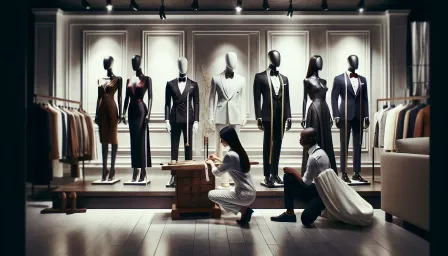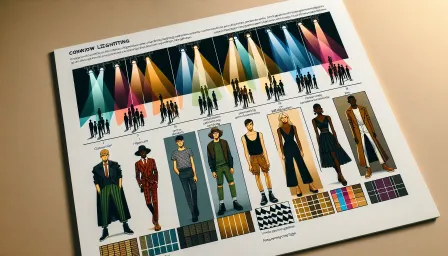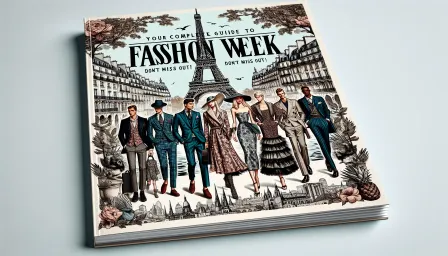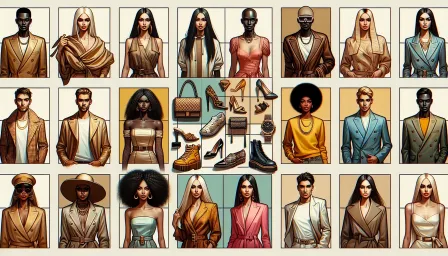The Rise and Influence of Iconic Fashion Designers

Explore the impactful legacy of iconic fashion designers and their influence on the fashion industry. Understand how these designers reshaped the world of fashion.
Fashion is an ever-changing landscape, continuously evolving and setting new trends. Amidst this dynamic environment, some fashion designers have not only stood out but have also set the benchmarks and standards for style and elegance. This article delves into the rise and influence of these iconic fashion designers, exploring their contributions and lasting impact on the industry.
The Birth of Iconic Fashion Designers
Fashion, as we know it today, owes much to the innovative minds of certain individuals who dared to challenge conventions and set new trends. While the world has seen numerous designers, few have attained the status of true icons. These designers have managed to leave an indelible mark on the fashion industry through their creativity, craftsmanship, and business acumen.
Early Pioneers
Coco Chanel
No discussion about iconic fashion designers can commence without mentioning Coco Chanel. Born in 1883, Chanel revolutionized women's fashion in the early 20th century. She introduced the concept of casual chic through her timeless designs like the little black dress and Chanel suit. Chanel's designs reflect a blend of functionality and elegance, making her a perennial figure in the fashion world.
Christian Dior
In 1947, Christian Dior introduced what is now known as the "New Look", characterized by cinched waists and voluminous skirts. Dior's vision marked a departure from the austere styles of the wartime dresses, celebrating femininity and luxury. His contributions continue to influence designers and fashion houses globally.
Modern Icons
While early pioneers set the groundwork, modern designers have taken their legacies further, blending tradition with innovation to cater to the contemporary audience. These designers have not only embraced the heritage of fashion but also leveraged technology and modern trends to stay relevant.
Yves Saint Laurent
Yves Saint Laurent is credited with revolutionizing women's fashion with his introduction of tuxedo-style suits for women. Launched in 1966, the "Le Smoking" suit challenged gender norms and has since become a symbol of empowerment for women. Saint Laurent's career was marked by bold designs and a willingness to experiment, forever changing the fashion landscape.
Alexander McQueen
Known for his avant-garde designs and dramatic showcases, Alexander McQueen brought a darker, more artistic edge to fashion. His collections often featured intricate detailing and innovative materials, pushing the boundaries of conventional fashion. McQueen's fearless creativity continues to inspire new generations of designers.
Vivienne Westwood
Vivienne Westwood is synonymous with punk fashion. Emerging in the 1970s, her designs epitomized the rebellious spirit of the punk movement. Westwood's emphasis on unorthodox materials and bold statements has cemented her as a true icon in the industry. Her unwavering commitment to sustainability has also made her a pioneer in eco-conscious fashion.
Influence on the Fashion Industry
The influence of iconic fashion designers extends beyond their individual creations. They have played instrumental roles in shaping fashion trends, consumer behavior, and industry standards.
Trendsetters
Iconic fashion designers are often at the forefront of setting trends. Their runway shows and collections become the yardsticks by which upcoming trends are measured. For instance, Chanel's quilted handbags or Dior's cinched waist silhouettes continue to serve as inspirations for contemporary designs.
Redefining Standards
These designers have continuously challenged and redefined industry standards. By breaking away from conventional styles and expectations, they have expanded the horizons of what is possible in fashion. Their ability to innovate has led to an ever-evolving industry that continually seeks to surprise and delight.
Global Reach and Brand Legacy
The impact of iconic fashion designers is also seen in the global reach of their brands. Names like Chanel, Louis Vuitton, and Gucci are synonymous with luxury and style around the world. These designers have cultivated brands that stand the test of time, signifying excellence and sophistication.
Challenges and Future Trends
While the legacy of iconic fashion designers is revered, the industry faces new challenges and trends that these designers must navigate.
Sustainability
The fashion industry is increasingly focusing on sustainability. Designers are now incorporating eco-friendly materials and practices into their collections. Icons like Stella McCartney have set strong examples by committing to ethical fashion, pushing the industry toward greener futures.
Technology Integration
The rise of digital fashion shows, virtual fittings, and use of AI in design processes signify significant changes. Iconic designers are embracing technology to stay connected with consumers and enhance their shopping experiences. This blending of fashion with technology is paving the way for innovative design and marketing strategies.
Conclusion
The rise and influence of iconic fashion designers cannot be overstated. From Coco Chanel's timeless elegance to Alexander McQueen's avant-garde artistry, these individuals have shaped the fashion industry, setting trends that continue to inspire. As the industry evolves with new challenges like sustainability and technology integration, these designers' legacies will undeniably guide the path forward.



























